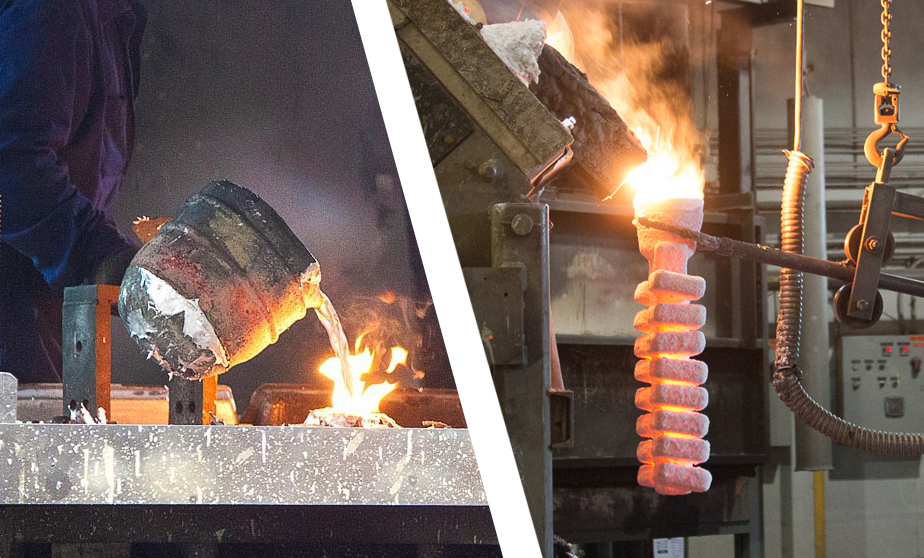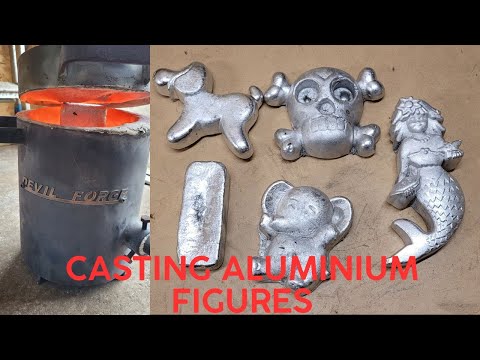Stahl Specialty Company Fundamentals Explained
Wiki Article
Not known Details About Stahl Specialty Company
Table of ContentsThe Definitive Guide to Stahl Specialty CompanyRumored Buzz on Stahl Specialty CompanySome Known Factual Statements About Stahl Specialty Company Unknown Facts About Stahl Specialty CompanyThe Ultimate Guide To Stahl Specialty Company
The subtle distinction hinges on the chemical web content. Chemical Contrast of Cast Aluminum Alloys Silicon promotes castability by reducing the alloy's melting temperature level and enhancing fluidness during casting. It plays a crucial duty in enabling detailed mold and mildews to be filled precisely. Furthermore, silicon adds to the alloy's strength and wear resistance, making it valuable in applications where longevity is critical, such as automotive parts and engine parts.It likewise improves the machinability of the alloy, making it easier to process right into ended up products. By doing this, iron adds to the overall workability of light weight aluminum alloys. Copper increases electrical conductivity, making it advantageous in electric applications. It also boosts deterioration resistance and includes to the alloy's overall strength.
Manganese adds to the toughness of aluminum alloys and improves workability. It is commonly utilized in wrought aluminum items like sheets, extrusions, and accounts. The visibility of manganese aids in the alloy's formability and resistance to breaking throughout construction procedures. Magnesium is a lightweight element that provides toughness and impact resistance to aluminum alloys.
It allows the production of lightweight elements with superb mechanical homes. Zinc boosts the castability of light weight aluminum alloys and aids control the solidification procedure throughout spreading. It boosts the alloy's toughness and hardness. It is frequently discovered in applications where intricate forms and great details are essential, such as ornamental castings and particular auto components.
Rumored Buzz on Stahl Specialty Company
Due to the fact that aluminum-silicon alloys have great spreading residential properties, high gas buildings, simple procedures, and superb rust resistance, aluminum-silicon alloys are most commonly used in the die-casting sector in your home and abroad. At the very same time, aluminum-silicon alloys are likewise reasonably early and extensively recognized alloys developed and used in die-casting. After continual study and improvement, many of the present worldwide mainstream aluminum-silicon alloys have actually been finalized and are nothing even more than A356, A360, A380, ADC12, B390, and A413.
The key thermal conductivity, tensile strength, yield stamina, and prolongation vary. Select suitable basic materials according to the efficiency of the target item generated. Amongst the above alloys, A356 has the greatest thermal conductivity, and A380 and ADC12 have the lowest. The tensile restriction is the contrary. A360 has the very best yield strength and the greatest prolongation rate.

4 Simple Techniques For Stahl Specialty Company
In accuracy spreading, 6063 is appropriate for applications where detailed geometries and top notch surface area finishes are paramount. Instances include telecommunication enclosures, where the alloy's premium formability permits smooth and visually pleasing styles while keeping structural stability. Similarly, in the Illumination Solutions sector, precision-cast 6063 components develop sophisticated and effective lighting components that require elaborate forms and good thermal performance.
(https://www.twitch.tv/stahlspecialc/about)
It results in a finer surface finish and much better rust resistance in A360. In addition, the A360 shows exceptional prolongation, making it excellent for facility and thin-walled elements. In precision spreading applications, A360 is well-suited for sectors such as Consumer Electronic Devices, Telecommunication, and Power Tools. Aluminum Casting. Its boosted fluidity enables for intricate, high-precision parts like mobile phone housings and interaction device real estates.

In precision casting, light weight aluminum 413 beams in the Customer Electronics and Power Tools industries. This alloy's superior corrosion resistance makes it an exceptional choice for outside applications, making certain durable, sturdy items in the discussed sectors.
The Ultimate Guide To Stahl Specialty Company
The aluminum alloy you select will considerably affect both the casting process and the homes of the final product. Due to the fact that of this, you need to make your decision meticulously and take an informed method.Determining the most ideal light weight aluminum alloy for your application will indicate evaluating a broad variety of characteristics. These comparative alloy characteristics comply with the North American Pass Away Spreading Association's standards, and we have actually divided them right into two categories. Foundry. The very first category addresses alloy attributes that affect the production process. The 2nd covers characteristics influencing the residential properties of the end product.
The alloy you choose for die casting straight affects a number of elements of the spreading process, like exactly how simple the alloy is to deal with and if it is prone to casting flaws. Warm cracking, likewise called solidification fracturing, is a normal die casting issue for aluminum alloys that can result in inner or surface-level tears or fractures.
Getting The Stahl Specialty Company To Work
Certain aluminum alloys are much more susceptible to hot cracking than others, and your choice needs to consider this. Another common defect found in the die spreading of light weight aluminum is pass this hyperlink away soldering, which is when the cast stays with the die walls and makes ejection tough. It can damage both the actors and the die, so you need to seek alloys with high anti-soldering residential properties.Rust resistance, which is already a remarkable quality of aluminum, can vary substantially from alloy to alloy and is a necessary characteristic to think about depending on the environmental conditions your product will certainly be revealed to. Put on resistance is an additional residential or commercial property commonly sought in light weight aluminum items and can differentiate some alloys.
Report this wiki page